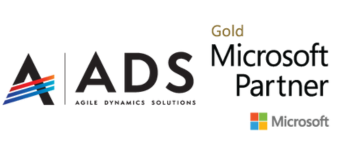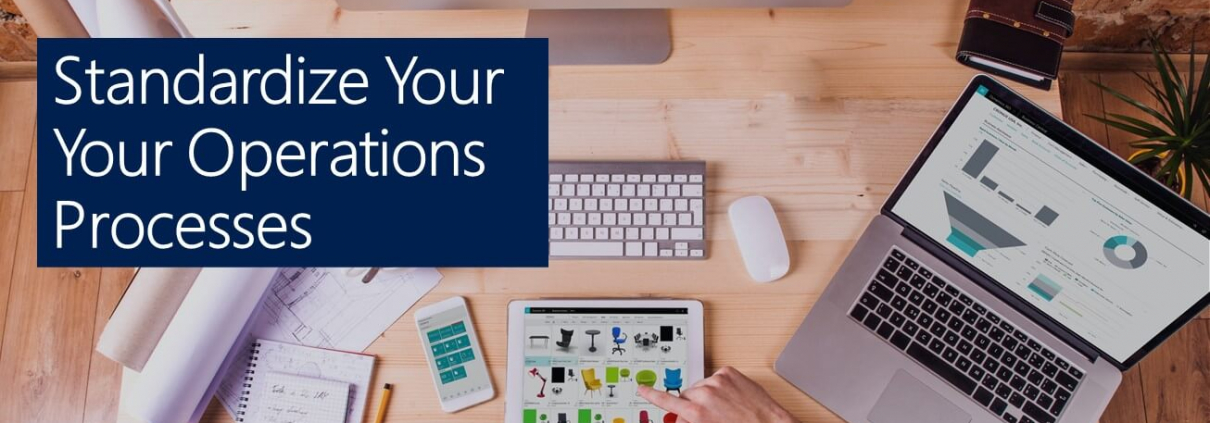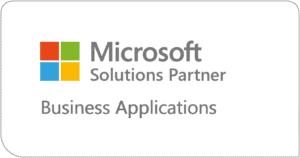How ERP System Standardize Your Business Processes?
For some businesses, standardization can seem to be limiting their operational procedures but nothing could be further from true.
Having standardized procedures and guidelines helps improve business efficiencies, productivity, reduce errors and thus save cost and much more. But even having a set of guidelines is not enough in the modern digital economy.
That is why often to go even further businesses implement some of the systems such as enterprise resource planning system (ERP) or business processes management system.
So moving from paper-based guidelines and flowcharts to more modern and efficient ways of completing business tasks by using these tools to create workflows and automation to standardize business procedures.
What is Standardization?
Standardization is a process of developing and implementing technical standards to guide the process of creation of a good and service based on the consensus of different parties that include firms, users, interest groups, standards organizations, and governments. This helps to ensure that all processes associated with the creation of a good or service are performed within the set of standards set by relevant parties.
Therefore, standardization of business processes can help organizations to help maximize business and operational efficiencies, reduce human errors, follow safety procedures, improve customer service, and more.
Implementing an ERP system for standardization is often seen in manufacturing industries to ensure their goods are up to their standards, but increasingly we can see ERP software has been implemented across industries such as professional services, hospitality, distribution, etc. to standardize their operations.
The importance of standardized business tasks is to ensure delivering high-quality customer service, up to standard products and services, maximize business effectiveness, and saving costs.
This means systems such as BMP (Business Process Management) and ERP (Enterprise Resource Planning) are more important for businesses as this helps standardize and automate their operation.
Nowadays, modern ERP systems not only help collect, store and analyze data across departments and third-party tools, but they come with BPM options that help you align your business processes with industry-standard processes.
Why do You Need Standardization?
The importance of standardization can be seen around the world more and more. Companies and customers expect to deliver consistency whether it is across local branches or the entire world.
Standardization helps you to ensure that every single of your branches, factories, and other business localities follow the same step of guidelines to deliver the exact same product and service to their customers.
According to Forrester’s studies, consistency is very important in customer experience and how you deliver your products and services. If the same products and services receive mixed feedbacks, often it is due to not standardized business procedures causing inconsistencies in your products or service, thus, harming your brand.
Standardization not only improve customer service but:
- Ensure procedures comprehension
- Guarantee product quality
- Facilitate process improvements
Additionally, is important to know that these problems often occur when your business is growing and you need to improve and standardize your manufacturing processes or depending on your industry.
From our experience, typically companies requesting for all-in-one business management solutions to cater to their needs and business challenges. This solution not only helps to standardize their business procedures but also centralize their operation, enabling a 360-degree view of their business, improve collaboration and reduce costs by reducing the number of different systems used by departments.
What Processes ERP System Helps Standardize?
There are many ways how you can standardize your business operation from the way how you collect and store data, how your employees perform certain tasks to more complex business processes to help you make your business more efficient.
The most common standardized business tasks are the one that is handled manually. This is important as procedure manuals aim to standardize jobs so that employees attain the desired quality.
So, any manual tasks done by your employees should have a set of guidelines, rules, and training. But in the world of digitalization ultimately your business should think about how to standardize operational tasks by automating them.
At first, businesses should focus on automating repetitive manual processes by using some of the technologies like workflows, AI, and machine learning, and as you progress you should automate more and more of your business tasks.
And that is when ERP systems are very important as they can provide companies with so-needed technologies that allow your organization to automate industry-specific tasks at first. Later your company can customize and automate even more of your tasks.
This will lead to a great improvement of your business efficiency, productivity and reducing human errors. That is why ERP systems are essential for modern companies to again flexibility and adaptability that allows you to standardize your and industry business processes.
Who Uses ERP System to Standardize Business Processes?
There are countless examples of industries and businesses that can use standardization of business processes. We could say that every business that employee manual labor could benefit from implementing an ERP system to standardize business processes.
Despite the other benefits of ERP system such as centralization of your business, increase collaboration, and reduce costs enterprise resource system planning software can help almost any company to standardize their operations.
The most common example of standardized operations in manufacturing and distribution industries. But as I said, other industries can and already benefit from using standardized systems to gain above mention benefits.
But let’s give a couple of examples for some industries and how they are using ERP systems for standardization to improve their business processes.
The first example is the most used and common and that is manufacturing. Manufacturing companies can greatly benefit from using enterprise resource planning software to standardize their day-to-day operation.
From reports, workflows, document processing, inventory management, purchasing, and supply chain to a wide range of business processes. The tasks that take the most amount of your time or where human errors commonly occur are the ones that being standardized and automated as a first.
Another example could be customer service, where is vital to ensure you are providing the same level of customer experience across different channels and your agents. There is nothing more frustrating than repeat yourself to agents or receive a different level of treatment every time you contact the same company.
This is when CRM systems play a vital role, but as total experience is becoming more important, CRM systems are not enough anymore. A recent Gartner report found that 75% of CRM software is built to serve specific departments rather than the business as a whole, meaning that data can become siloed and inconsistent across departments.
Your customers can communicate across multiple channels with different departments making it even more important to centralize and standardize your operation processes across all departments. Check out our guide on ERP Inventory Management to learn more about this.
Conclusion
Standardizing your business procedures with flowcharts and a set of guidelines is the first and important step, but as technologies are getting better it is important to implement some of the systems to standardize your business tasks by creating automation and workflows.
This ensures your business is maximizing its efficiencies, reduce errors and save costs and bring more revenue for your company. Enterprise resource planning software helps you centralize your operation and standardize your business tasks.
Whether you have one factory, branch, or office or many across regions and countries, these systems allow you to connect them and implement the best set of practices across all of them.
This helps especially when your business is growing and you adding more locations to your business. Thanks to these systems you can make sure, that your new location is up and running with your unique best practices followed and implemented since the beginning.
We are the leading Microsoft ERP & CRM partner in Malaysia and Singapore and if you want to see how exactly we can help you standardize your operation, then request your free personalized demo.



